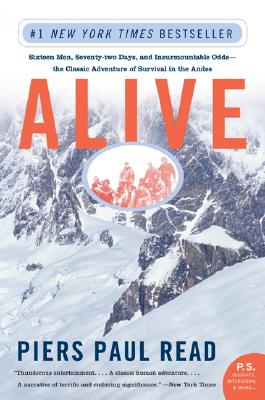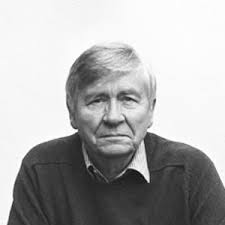

 Harper Perennial
Harper Perennial
Alive: Sixteen Men, Seventy-Two Days, and Insurmountable Odds--The Classic Adventure of Survival in the Andes


Key Metrics
- Piers Paul Read
- Harper Perennial
- Paperback
- 9780060778668
- 8.02 X 5.38 X 1.13 inches
- 0.86 pounds
- Travel > Special Interest - Adventure
- English
 Secure Transaction
Secure TransactionBook Description
#1 New York Times Bestseller
No one will come away unmoved by the book, and no one will be able to put it down.... There is no way of reading Alive without a heightened sense of one's own life and its value. -- New Republic
Sixteen Men, Seventy-Two Days, and Insurmountable Odds--the Classic Adventure of Survival in the Andes
On October 12, 1972, an Uruguayan Air Force plane carrying a team of rugby players crashed in the remote snowy peaks of the Andes. Ten weeks later, only sixteen of the forty-five passengers were found alive. This is the story of those ten weeks spent in the shelter of the plane's fuselage without food and with scarcely any hope of a rescue. The survivors protected and helped one another, and came to the difficult conclusion that to live meant doing the unimaginable. Confronting nature at its most furious, two brave young men risked their lives to hike through the mountains looking for help. A tale of astonishing bravery and adventure, Alive is much more than a survival story, it is a breathtaking saga of human courage
The P.S. edition features an extra 16 pages of insights into the book, including interviews, recommended reading, and more.
Author Bio
Piers Paul Read was born on 7 March, 1941, in Beaconsfield, Buckinghamshire, the third son of the poet and art critic, Sir Herbert Read, and Margaret Ludwig, a musician of German, Scottish, Irish and Italian extraction. At the age of eight, Read moved with his family to the village of Stonegrave in Ryedale, North Yorkshire, close to the farm where his father had lived as a child. Read’s mother was a convert to Catholicism and he was sent to the nearby Benedictine school at Ampleforth – first as a day boy, later as a boarder. He has continued to practise the Catholic faith throughout his life.
Margaret LudwigRead left Ampleforth at the age of sixteen and went to live in Paris where he attended the Cours de Civilisation Française at the Sorbonne. Between 1959 and 1962 he studied History at St. John’s College, Cambridge. After graduating, he worked for the Kindler Verlag in Munich, was a stipendiary of the Ford Foundation in Berlin, worked on the staff of The Times Literary Supplement in London and spent a year on a Harkness Fellowship in the United States. Read’s first novel, Game in Heaven with Tussy Marx, was published in 1966.
Stonegrave HouseEarly in his career, Read wrote a number of scripts for film and television but the greater part of his work has been in book form. After his plotless first novel, Game in Heaven with Tussy Marx (1967), Read’s fiction adopted a more traditional narrative structure with both contemporary and historical settings. Read’s contemporaneous novels – Monk Dawson (1969), The Upstart (1973), A Married Man (1979), A Season in the West (1988) and The Misogynist (2010) – are ironic critiques of the professional and upper-middle classes living in West London. Three of his historical novels – The Junkers (1968), Polonaise (1976), The Free Frenchman (1986) – are set in Continental Europe around the time of World War II; and Alice in Exile (2001) in Russia during the Bolshevik Revolution.
There are elements of the thriller in The Professor’s Daughter (1971),The Villa Golitsyn (1981), On the Third Day (1990), A Patriot in Berlin (1995), Knights of the Cross (1997) and The Death of a Pope (2009) although these too show Read’s historical, political and religious concerns.
Piers Paul Read with the SurvivorsIn 1973, Read was chosen by the Uruguayan survivors of an air crash in the Andes to write an account of their ordeal. This was published the following year as Alive. The Story of the Andes Survivors and subsequently sold five million copies world-wide.
Two works of reportage followed Alive – The Train Robbers (1978), and Ablaze. The Story of Chernobyl (1993). His first work of history was The Templars (1999) followed by The Dreyfus Affair (2012).
At the request of Merula Guinness, the actor’s widow, Read wrote Alec Guinness. The Authorised Biography (2003).
Read is a Fellow of the Royal Society of Literature, and has served on the governing bodies of the Society of Authors, the Institute of Contemporary Arts, the Royal Society of Literature, the Catholic National Library, the Catholic charity Aid to the Church in Need, Cardinal Manning Boys School and More House school for girls. Between1975-77 Read was a Member of the Literature Panel of the Arts Council, and in 1980 was Adjunct Professor of Writing at Columbia University, New York.
Piers Paul Read’s papers are to be found in the Special Collections section of the Brotherton Library in Leeds.
In 1967, Read married Emily Boothby in the cathedral in Strasbourg where her father, Evelyn Basil Boothby, was British representative to the Council of Europe. They have lived at different times in the United States, France and North Yorkshire but settled in London in 1980. They have four children and six grandchildren.
Source: pierspaulread.co.uk
Videos
No Videos
Community reviews
Write a ReviewNo Community reviews